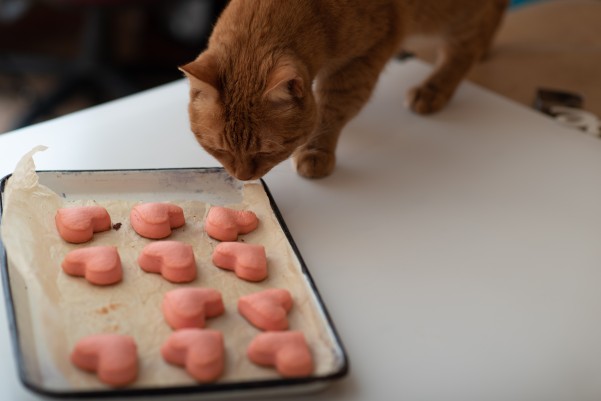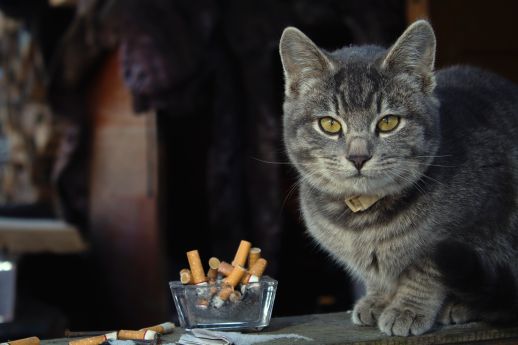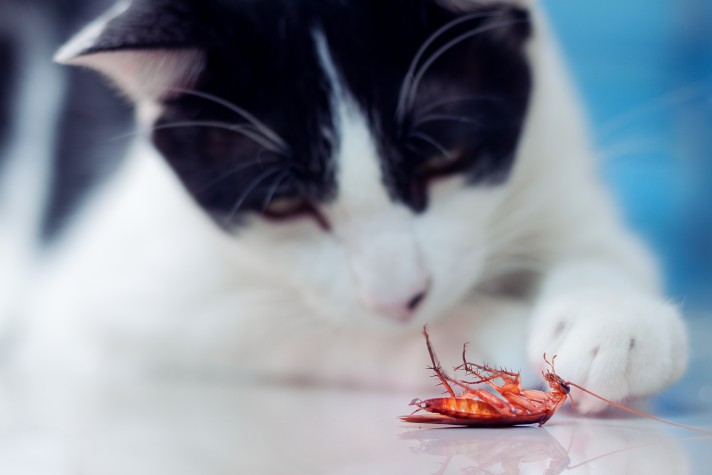Connect with a verified veterinarian in minutes. Licensed vets are available 24/7 to answer your questions. No need to worry about your furry family member.
Cats love to play with almost anything! A cat may play with a paperclip for quite a while after she finds it! But cats seem to be highly attracted to things that are thin and bouncy, like a rubber band. Occasionally, as a cat plays, she may accidentally eat the rubber band. But what happens if a cat eats a rubber band?
Has your cat eaten a rubber band? Are you worried the rubber band will make your cat sick? If so, you’ve come to the right place. We understand it can be scary when your cat eats something like this.
We’ve gathered information about rubber bands and whether they can make a cat sick. Let’s get started!
What is a Rubber Band?
A rubber band (also called an elastic band or a gum band) is a loop of rubber that creates a ring or oval shape. These bands are helpful in keeping things together, such as paper and other items.
Did you know that rubber bands have been around for a long time? They were first invented in 1845 by Stephen Perry in England. And from there, rubber bands have been around.
Most of us have a lot of rubber bands in the house. They’re very handy and usually safe; however, what happens if a cat eats a rubber band?
Rubber Bands & Cats
Unfortunately, a rubber band can make a cat sick. The first issue is that cats have delicate stomachs, and it’s possible your fur baby may vomit the rubber band out. That’s a good thing!
However, rubber bands could cause diarrhea and vomiting, leading to dehydration. The rubber band could also cause your cat to choke.
Another problem is that the rubber band could cause a problem in the cat’s intestines. Like string, the rubber band could cause the intestines to become tangled. This can cause death if not treated promptly.

Review symptoms, medications & behavior to keep your pets healthy with a Vet Online in just minutes.
Ask a Vet Live NowSymptoms of Rubber Band Ingestion in Cats
You may notice these symptoms if your cat has swallowed a rubber band:
- Lack of appetite
- Vomiting
- Diarrhea
- Constipation
- Changes in their poop
- Behavioral issues (such as hiding and not coming out)
- Sleeping a lot, not wanting to play
- Abdominal pain & swelling
- Changes in drinking habits (may drink a lot more or not at all)
If you notice any of these symptoms in your cat, call the vet immediately. This is an emergency.
Do not induce vomiting unless directed to do so by the vet.
Treatment of Rubber Band Ingestion in Cats
Treatment depends on your cat’s symptoms. The vet may first take images of your cat’s digestive tract to see if the rubber band has created a blockage or another problem. If so, your fur baby may require surgery to remove the rubber band and repair any damage it may have caused.
If the rubber band is in your cat’s stomach, the vet may induce vomiting to see if the rubber band comes out. They will treat any other symptoms your cat is having, such as diarrhea and vomiting. In some cases, your feline friend may require an IV for fluids and to administer medications. She may also need supplemental oxygen.
The prognosis is best for cats who receive prompt medical treatment after eating a rubber band. If your cat has a penchant for rubber bands, it’s best to keep these out of her reach. You’ll both be happier for it!
Connect with a verified veterinarian in minutes. Licensed vets are available 24/7 to answer your questions. No need to worry about your furry family member.

Julie
Julie is a graduate of the University of North Carolina, Wilmington, where she studied Animal science. Though contrary to the opinion of her parents she was meant to study pharmacy, but she was in love with animals especially cats. Julie currently works in an animal research institute (NGO) in California and loves spending quality time with her little cat. She has the passion for making research about animals, how they survive, their way of life among others and publishes it. Julie is also happily married with two kids.
Review symptoms, medications & behavior to keep your pets healthy with a Vet Online in just minutes.
Ask a Vet Live Now




